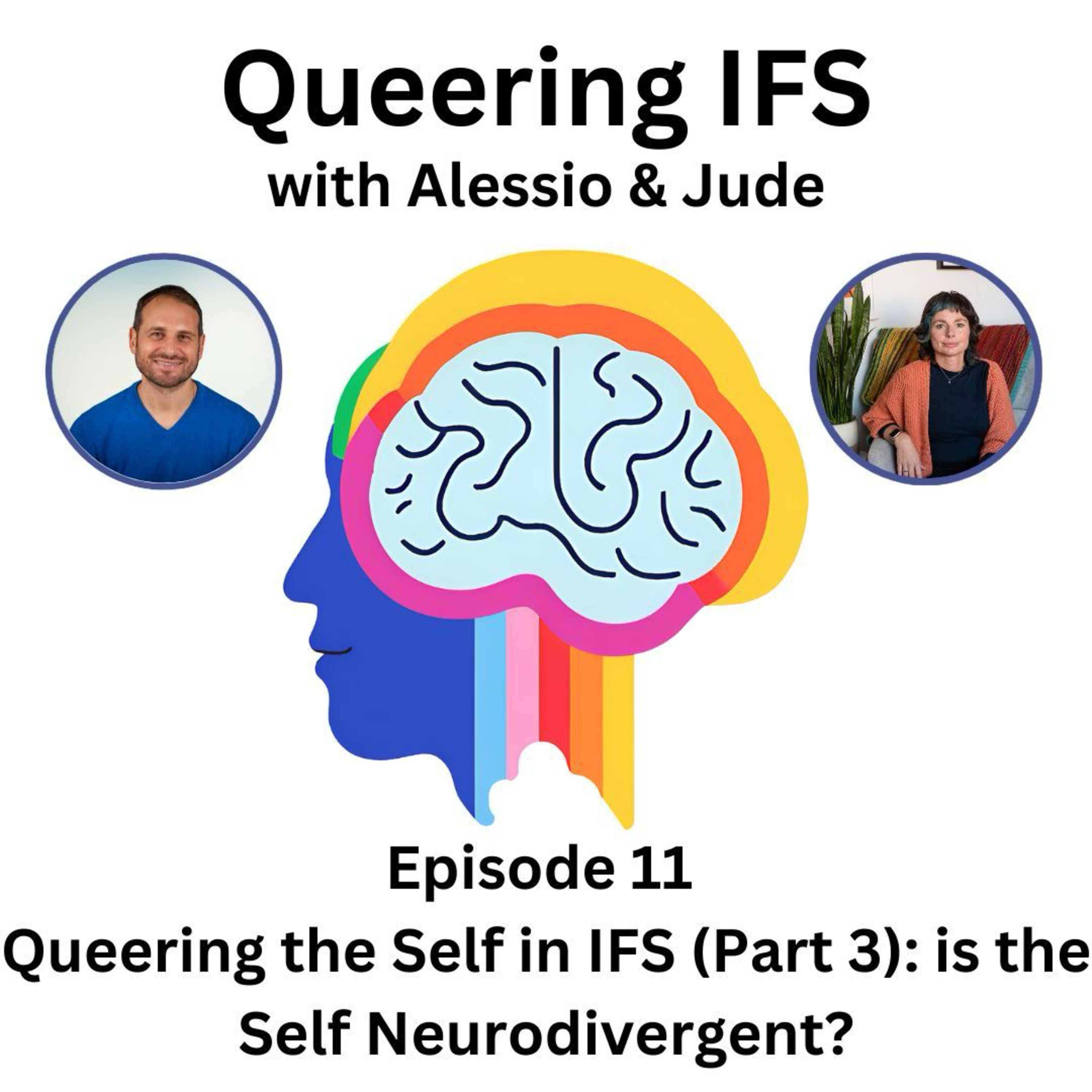Queering Internal Family Systems

Queering Internal Family Systems
Podcast Description
A new podcast by two Internal Family Systems (IFS) psychotherapists, Alessio Rizzo and Jude Carn uses the lenses of queering, neuroqueering, queerness and neurodiversity to make IFS more accessible to marginalised identities and to support therapists in being better allies, supporters and advocates for their diverse clients.
Podcast Insights
Content Themes
The podcast delves into themes surrounding queering, neuroqueering, and neurodiversity within the context of IFS therapy, with episodes that explore topics like the distinction between neurodiversity and IFS parts, and the importance of understanding diverse identities and experiences to support marginalized clients better.

A new podcast by two Internal Family Systems (IFS) psychotherapists, Alessio Rizzo (he/they) and Jude Carn (she/they) uses the lenses of queering, neuroqueering, queerness and neurodiversity to make IFS more accessible to these marginalised identities and to support therapists in being better allies, supporters and advocates for their diverse clients.
This week, Alessio and Jude explore the intersection of Internal Family Systems (IFS) therapy and neurodivergence, as they ponder intriguing questions about the Self and neurodivergence.
This is the third episode in their exploration of Self-energy, queerness and neurodivergence. With reference to Nick Walker's pioneering work on Neuroqueering, they navigate the shifting cultural and historical contexts of neurodiversity, offering listeners an understanding of what it means to embrace cognitive differences within societal norms.
As we draw on the hardware-software analogy, where the body serves as hardware and the self and its parts as software, we delve into the nuanced relationship between neurocognitive functioning and personal identity. Referencing the perspectives of several different thinkers in the field, they challenge the scientific community's attempts to measure the intangible aspects of The Self. This conversation highlights the complexities of Self-energy as it weaves through gender identity, culture, ethnicity, and neurodivergence, raising questions about advocacy for neurodivergent selfhood.
Connect with us as we continue to foster a community engaging with neuroqueer themes through workshops and projects. Our shared journey is one of curiosity and openness, encouraging listeners to appreciate diverse perspectives and question binary paradigms.
Disclaimer
This podcast is hosted by qualified therapists who share personal reflections and professional insights into therapy and mental health. The views expressed are those of the individual speakers or guests and are personal to them.
While we talk about therapy, this podcast is not therapy. It’s for information, reflection, and conversation only, and should never be considered a substitute for professional mental health support, diagnosis, or treatment. Listening to this podcast does not create a therapist-client relationship.
Some episodes may touch on sensitive topics, so please take care while listening. If you're struggling, we encourage you to reach out to a qualified therapist or mental health professional in your area.
Guest opinions are their own and don’t necessarily reflect those of the hosts.
Contacts
Alessio Rizzo (He/They) is a Certified IFS psychotherapist, IFS Trainer with the IFS institute, and Approved Clinical Consultant (ACC) – www.therapywithalessio.com
Jude Carn (She/They) is a Certified IFS psychotherapist and an Approved Clinical Consultant (ACC) with the IFS Institute – www.anchoredinself.co.uk
Sound editing by Forbes Coleman

Disclaimer
This podcast’s information is provided for general reference and was obtained from publicly accessible sources. The Podcast Collaborative neither produces nor verifies the content, accuracy, or suitability of this podcast. Views and opinions belong solely to the podcast creators and guests.
For a complete disclaimer, please see our Full Disclaimer on the archive page. The Podcast Collaborative bears no responsibility for the podcast’s themes, language, or overall content. Listener discretion is advised. Read our Terms of Use and Privacy Policy for more details.